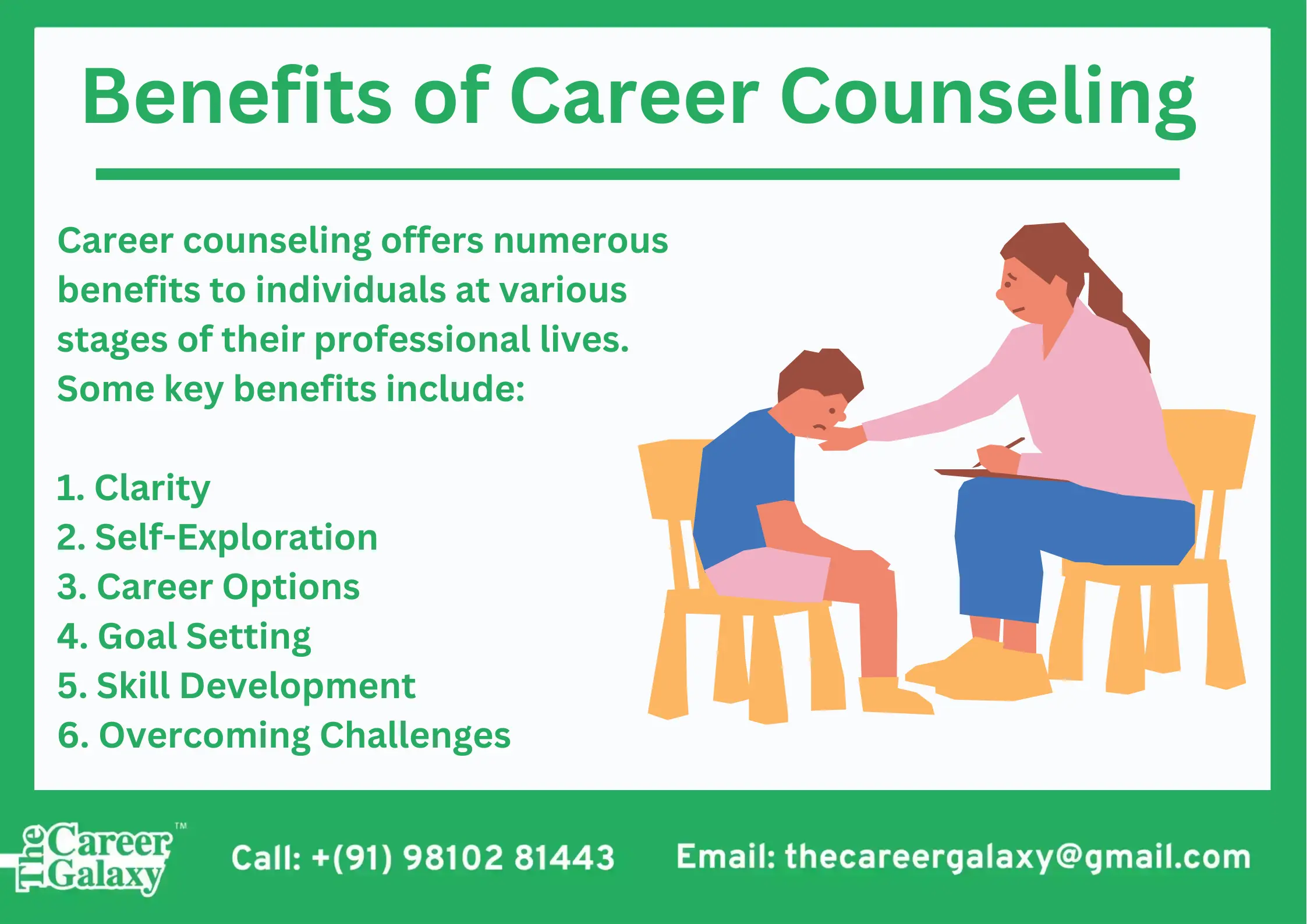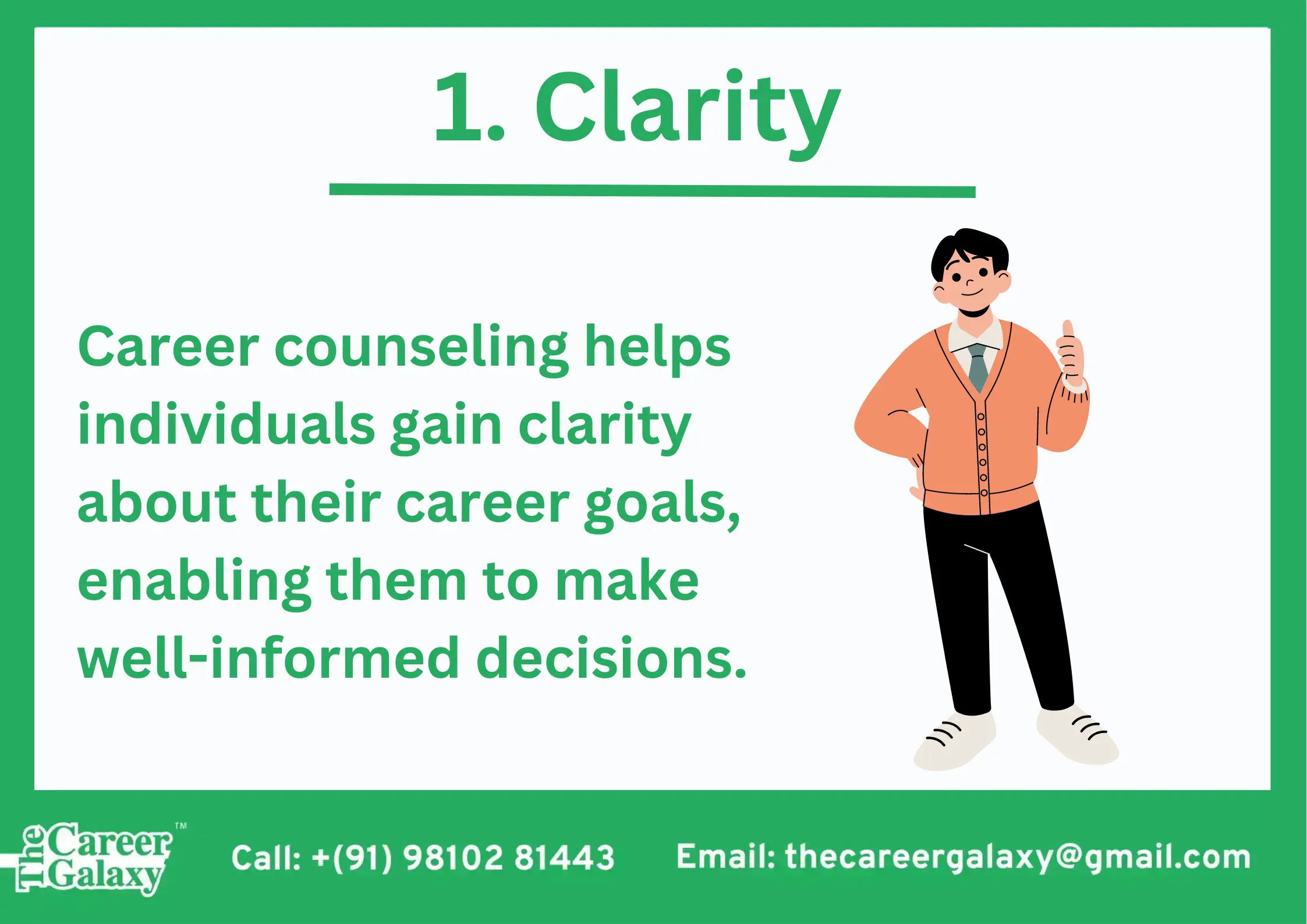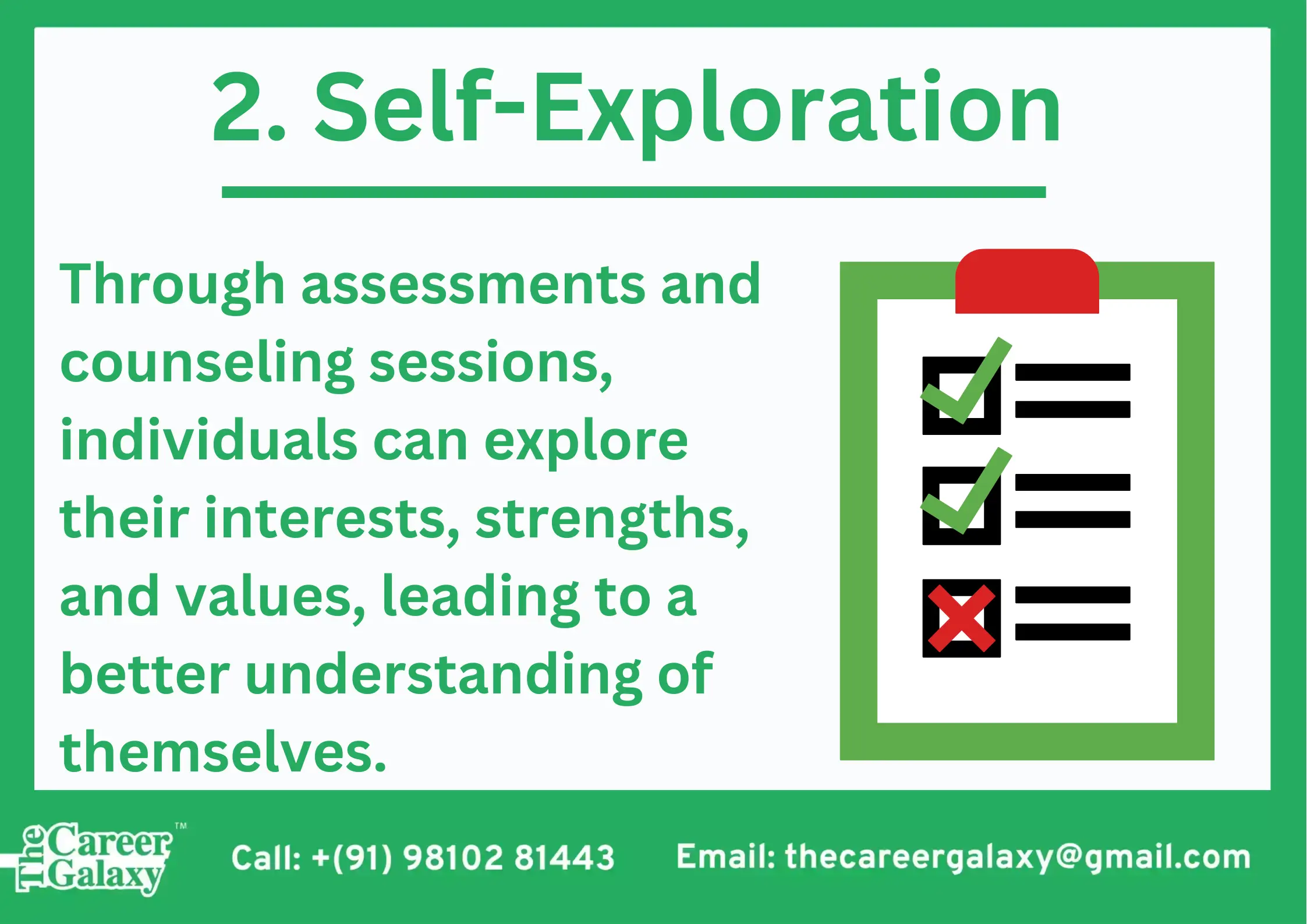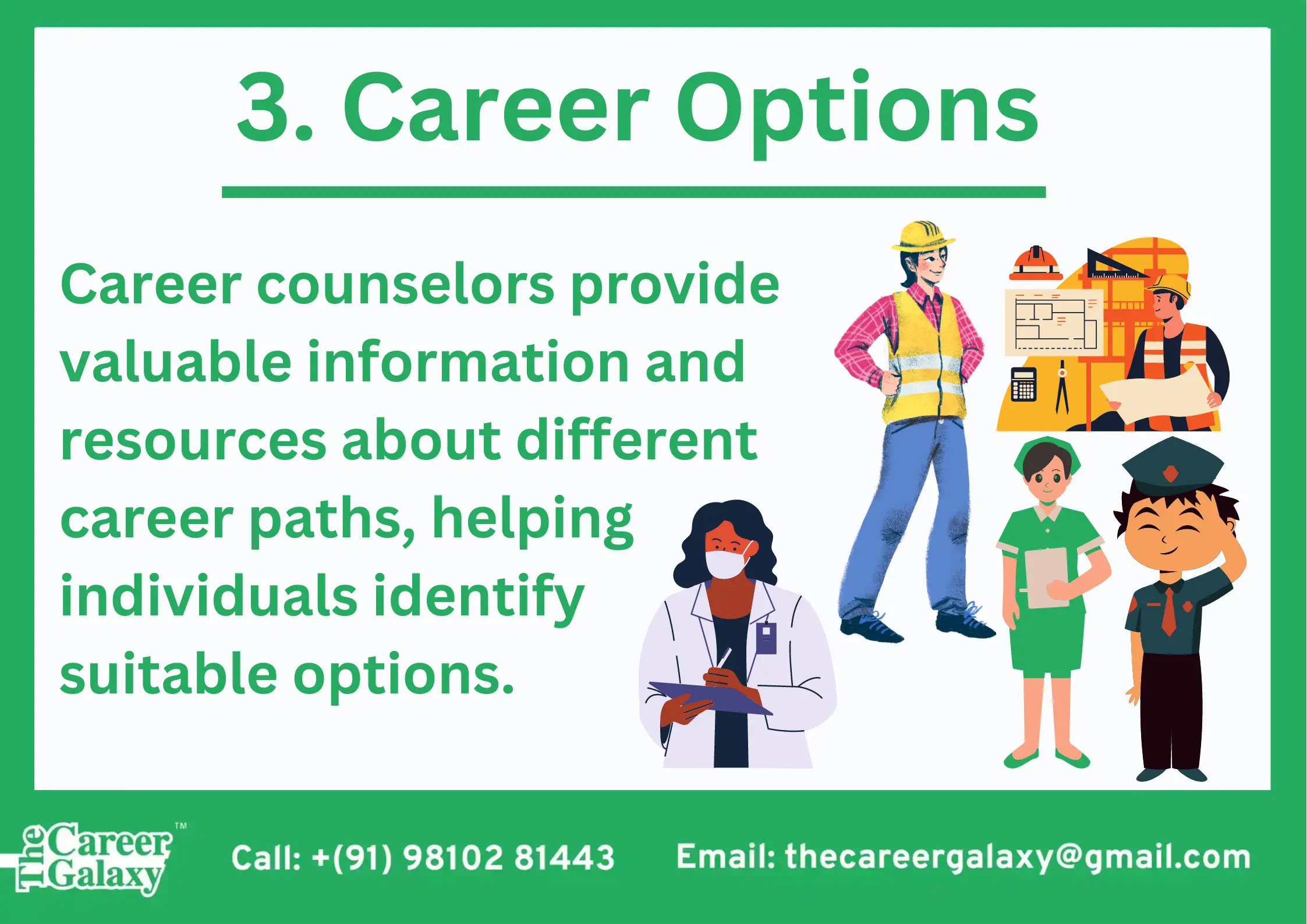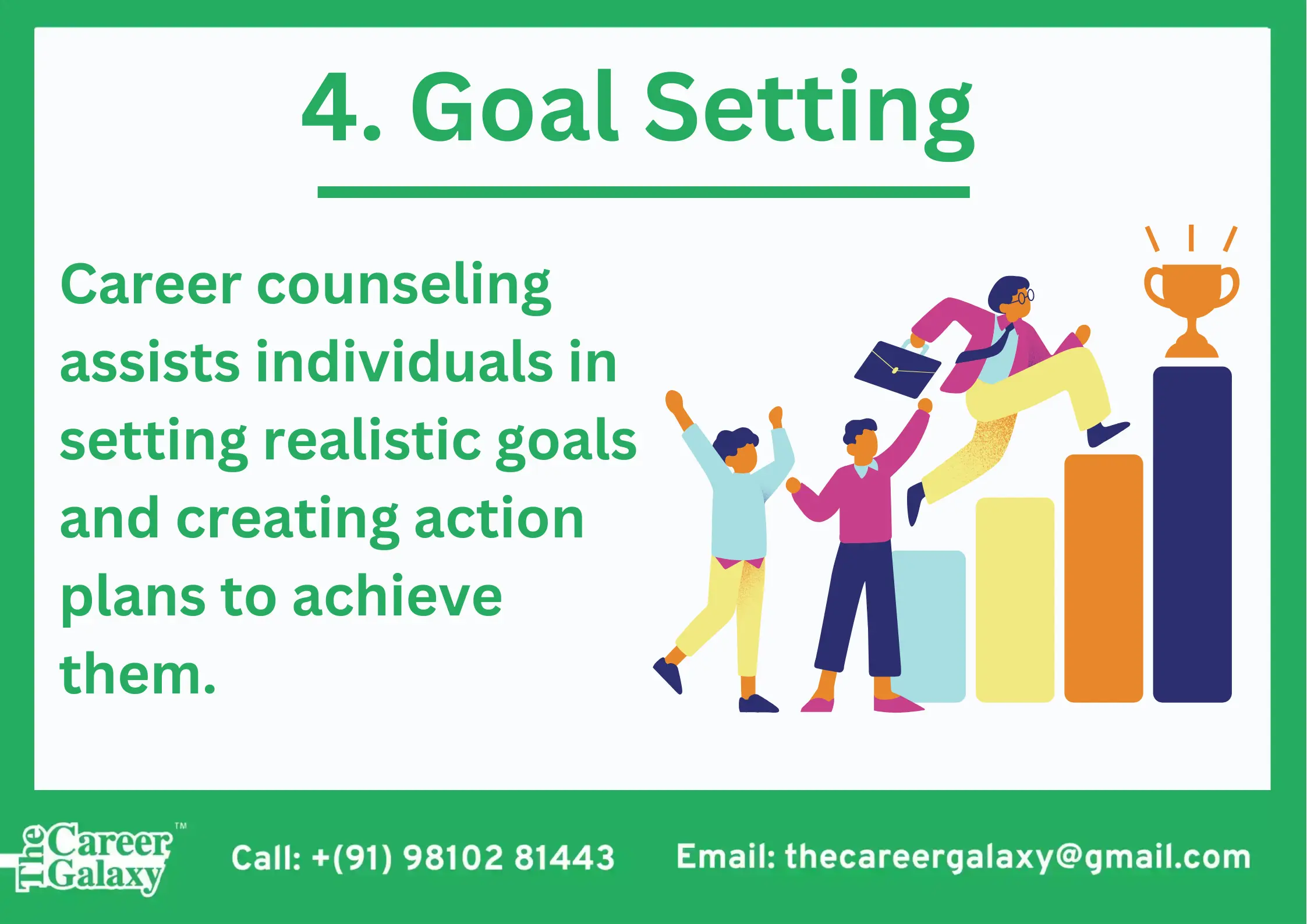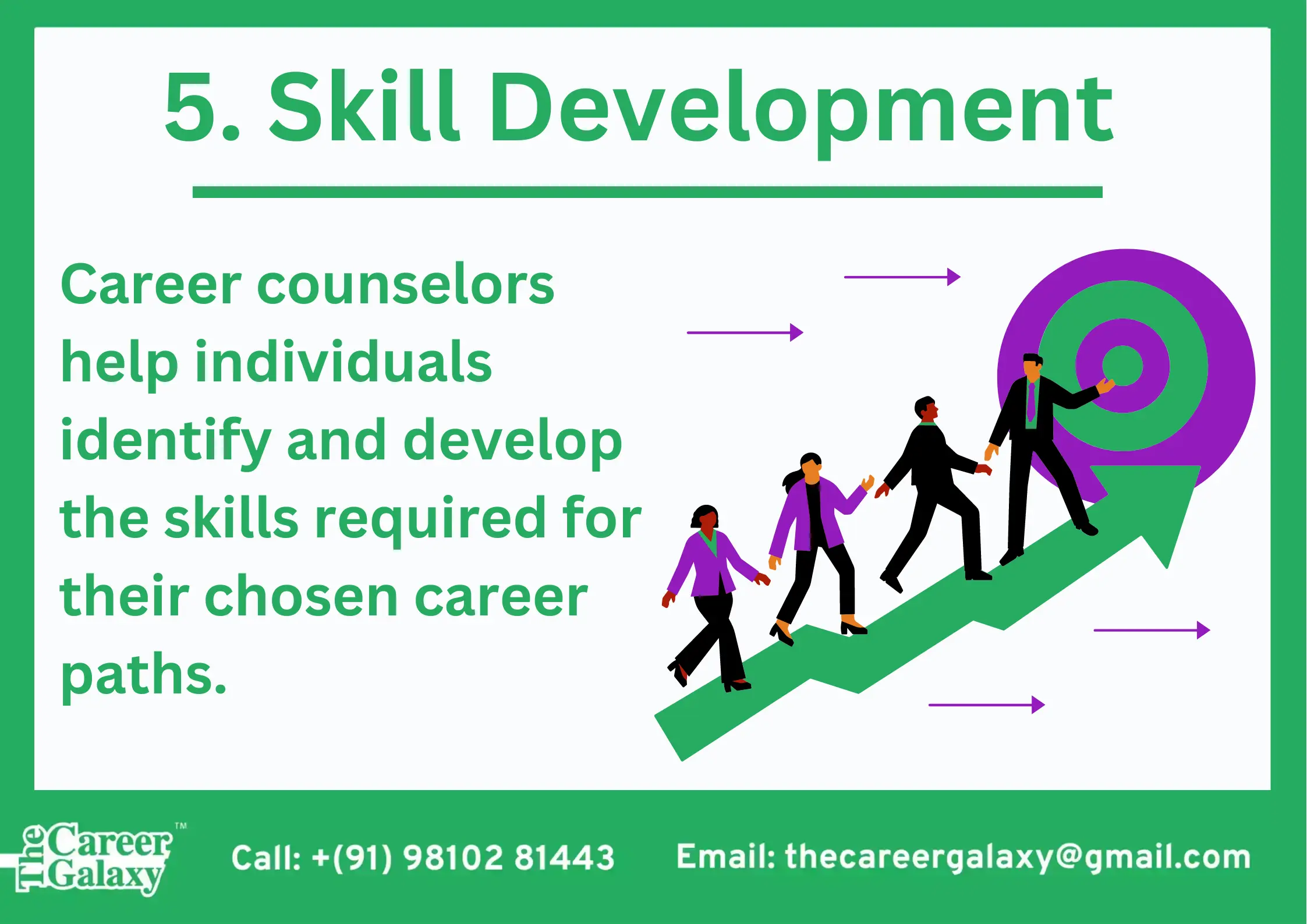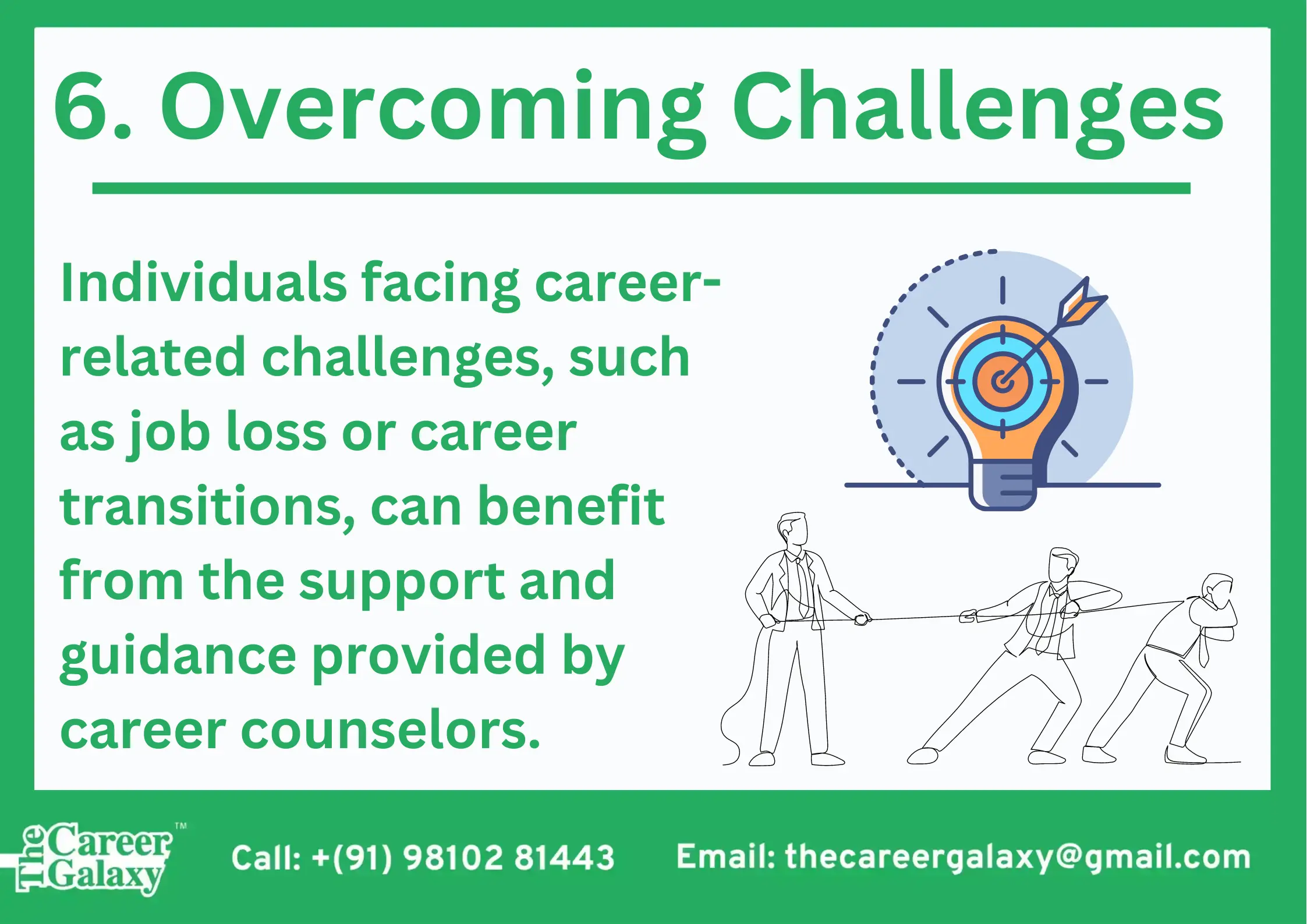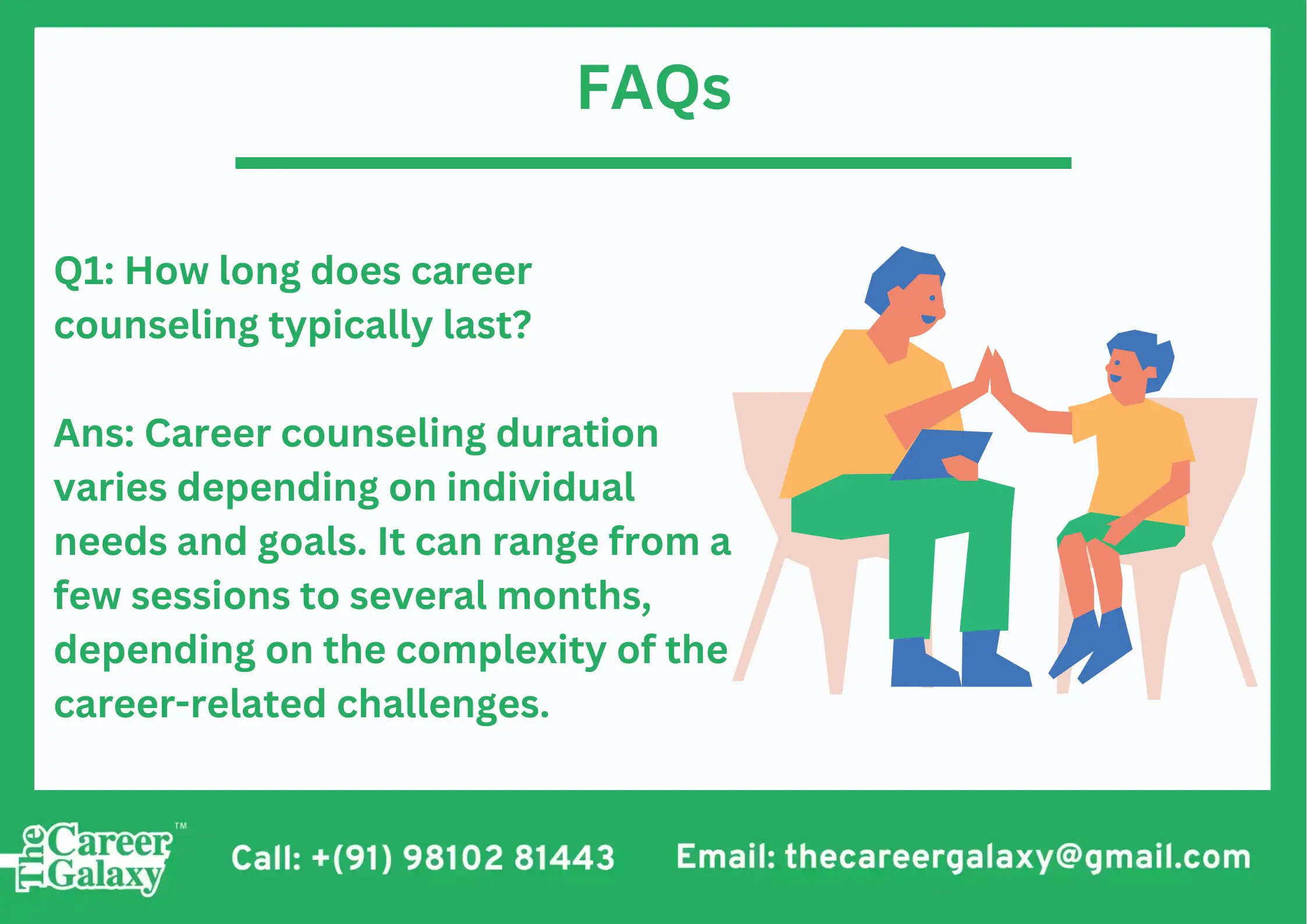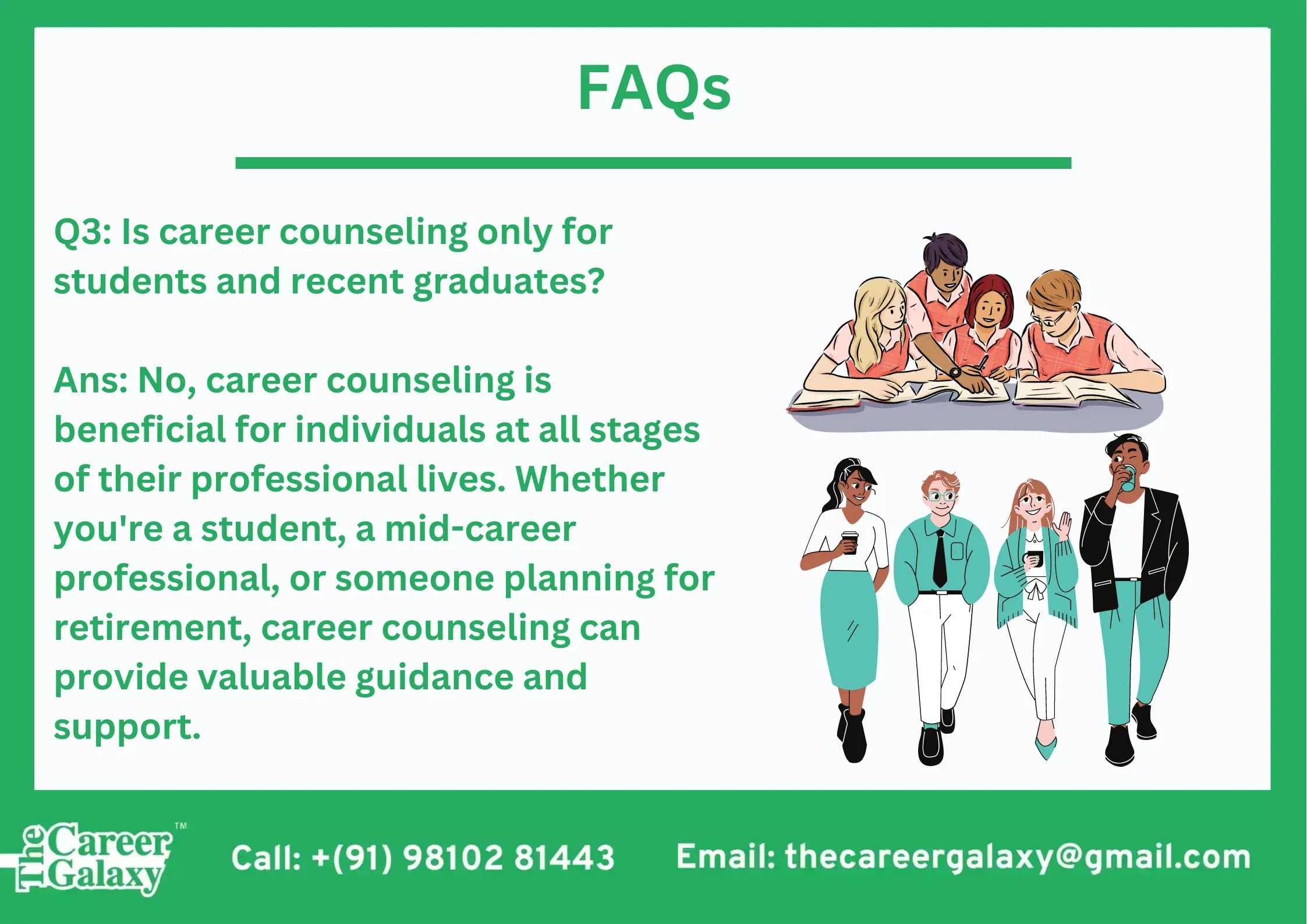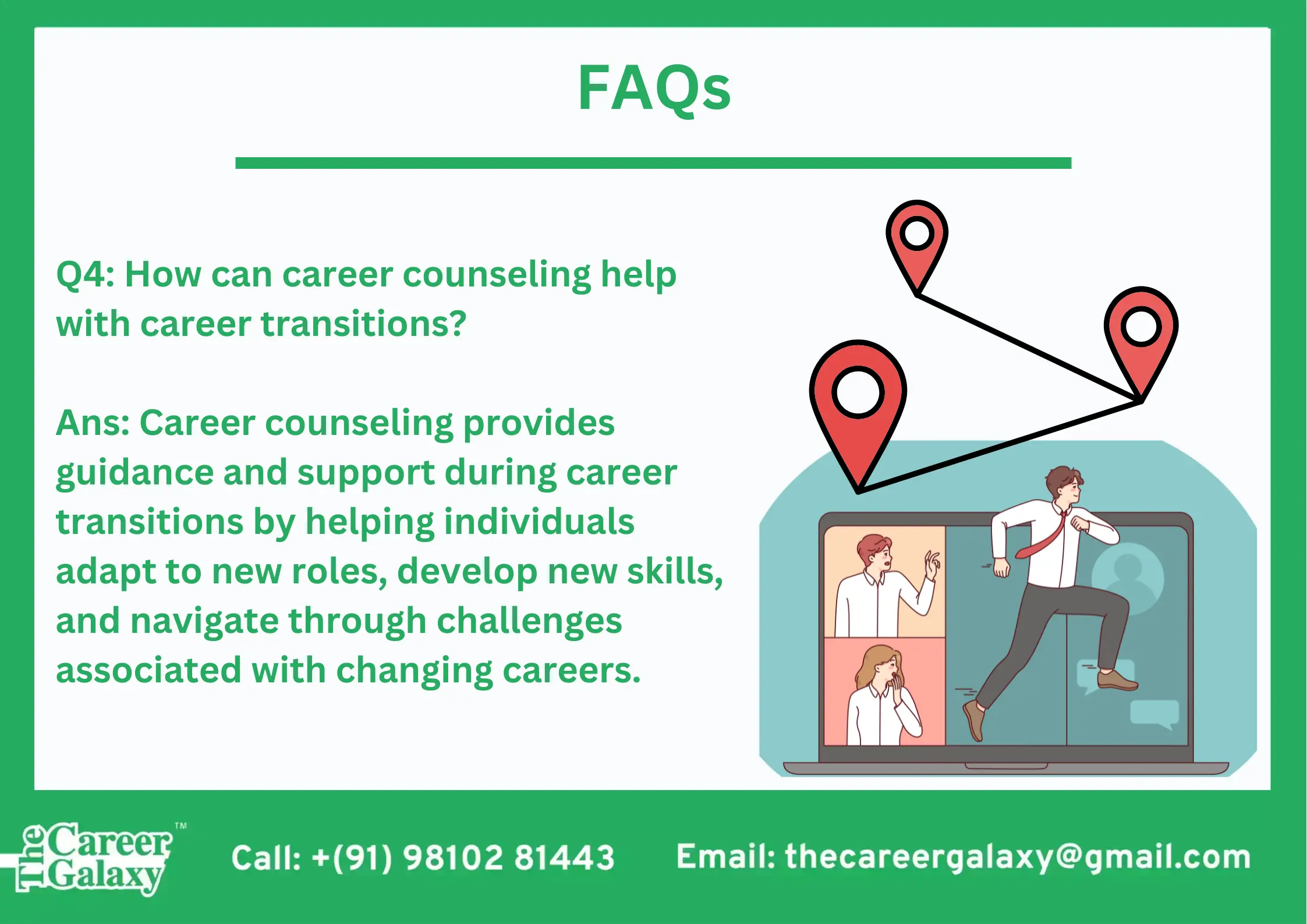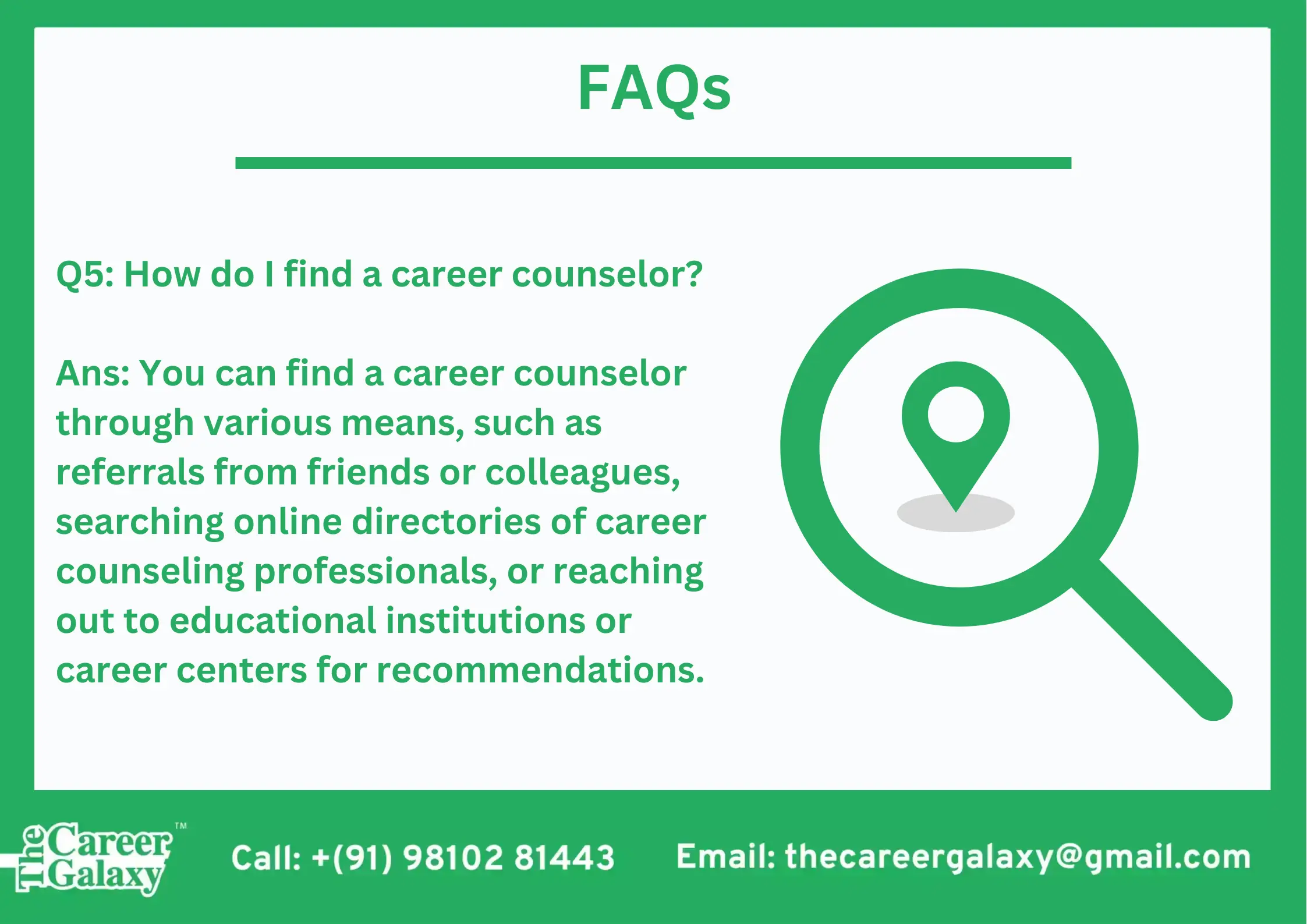What is Career Counseling?
Career counseling is a valuable process that assists individuals in making informed decisions about their career paths. It is a supportive service that helps individuals explore and evaluate their interests, strengths, values, and goals in order to make well-informed decisions regarding their career choices. This article aims to provide a comprehensive understanding of what career counseling entails, its benefits, and how it can positively impact individuals in their professional lives.
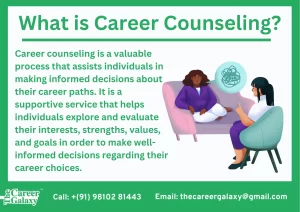
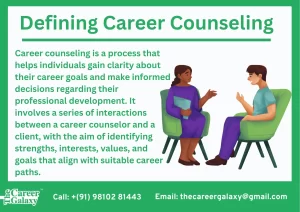
Introduction: Defining Career Counseling
Career counseling is a process that helps individuals gain clarity about their career goals and make informed decisions regarding their professional development. It involves a series of interactions between a career counselor and a client, with the aim of identifying strengths, interests, values, and goals that align with suitable career paths.
The Role of a Career Counselor
A career counselor plays a crucial role in the career counseling process. They provide guidance, support, and expertise to help individuals explore various career options, overcome obstacles, and make informed decisions. Career counselors employ a range of techniques such as assessments, interviews, and counseling sessions to gain insight into the client’s aspirations and provide tailored guidance.
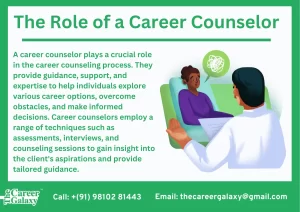
Benefits of Career Counseling
Career counseling offers numerous benefits to individuals at various stages of their professional lives. Some key benefits include:
- Clarity: Career counseling helps individuals gain clarity about their career goals, enabling them to make well-informed decisions.
- Self-Exploration: Through assessments and counseling sessions, individuals can explore their interests, strengths, and values, leading to a better understanding of themselves.
- Career Options: Career counselors provide valuable information and resources about different career paths, helping individuals identify suitable options.
- Goal Setting: Career counseling assists individuals in setting realistic goals and creating action plans to achieve them.
- Skill Development: Career counselors help individuals identify and develop the skills required for their chosen career paths.
- Overcoming Challenges: Individuals facing career-related challenges, such as job loss or career transitions, can benefit from the support and guidance provided by career counselors.
Assessing Interests, Strengths, and Values
In career counseling, assessing interests, strengths, and values is a crucial step. Through various assessment tools, individuals can gain insights into their preferences, talents, and personal values. This information helps them align their career choices with their core attributes, ensuring a fulfilling and satisfying professional life.
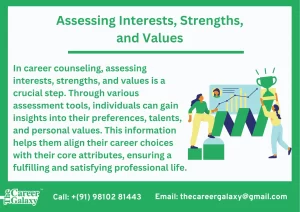
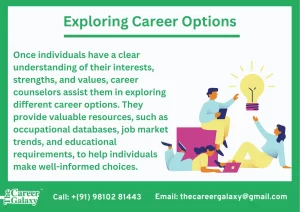
Exploring Career Options
Once individuals have a clear understanding of their interests, strengths, and values, career counselors assist them in exploring different career options. They provide valuable resources, such as occupational databases, job market trends, and educational requirements, to help individuals make well-informed choices.
Setting Goals and Creating Action Plans
Setting goals is an essential aspect of career counseling. Career counselors work with individuals to establish realistic and achievable goals based on their interests, strengths, and values. They also assist in creating action plans that outline the necessary steps to reach these goals, ensuring individuals stay focused and motivated.
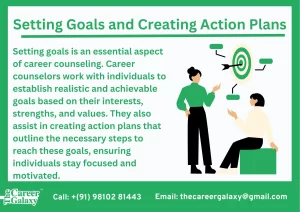
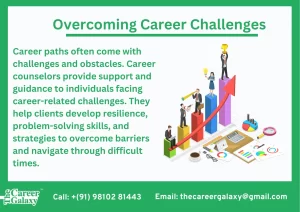
Overcoming Career Challenges
Career paths often come with challenges and obstacles. Career counselors provide support and guidance to individuals facing career-related challenges. They help clients develop resilience, problem-solving skills, and strategies to overcome barriers and navigate through difficult times.
Developing Professional Skills
In addition to assisting individuals with career decision-making, career counselors also focus on developing essential professional skills. They provide guidance on enhancing communication skills, leadership abilities, time management, and networking, all of which are crucial for success in the workplace.
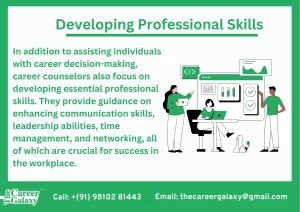
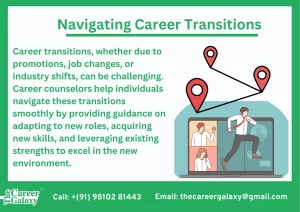
Navigating Career Transitions
Career transitions, whether due to promotions, job changes, or industry shifts, can be challenging. Career counselors help individuals navigate these transitions smoothly by providing guidance on adapting to new roles, acquiring new skills, and leveraging existing strengths to excel in the new environment.
Maximizing Job Satisfaction
Career counseling aims to maximize job satisfaction for individuals. By aligning career choices with interests, strengths, and values, individuals are more likely to find fulfillment and enjoyment in their chosen professions. Career counselors assist in exploring opportunities that match personal preferences, promoting long-term career satisfaction.
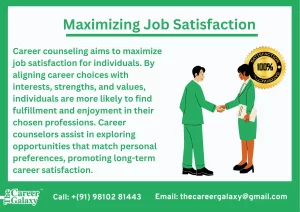
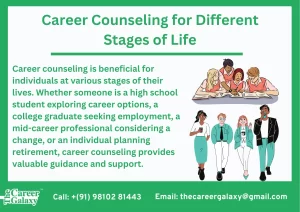
Career Counseling for Different Stages of Life
Career counseling is beneficial for individuals at various stages of their lives. Whether someone is a high school student exploring career options, a college graduate seeking employment, a mid-career professional considering a change, or an individual planning retirement, career counseling provides valuable guidance and support.
Utilizing Technology in Career Counseling
In today’s digital age, technology plays a significant role in career counseling. Online assessments, virtual counseling sessions, and career exploration tools have made career counseling more accessible and convenient. Career counselors leverage technology to provide personalized guidance and resources to individuals, irrespective of their physical location.
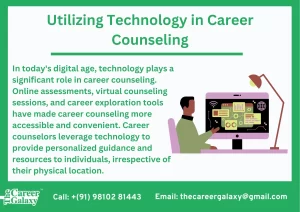
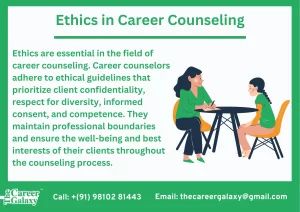
Ethics in Career Counseling
Ethics are essential in the field of career counseling. Career counselors adhere to ethical guidelines that prioritize client confidentiality, respect for diversity, informed consent, and competence. They maintain professional boundaries and ensure the well-being and best interests of their clients throughout the counseling process.
The Future of Career Counseling
The field of career counseling continues to evolve in response to changing trends and demands in the job market. The future of career counseling is likely to witness increased integration of technology, remote counseling options, and a focus on lifelong career development. Career counselors will continue to play a vital role in helping individuals adapt to evolving work environments and make informed career decisions.
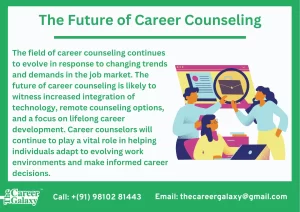
Conclusion
Career counseling is a valuable process that empowers individuals to make informed decisions about their professional lives. It offers benefits such as clarity, self-exploration, goal setting, and overcoming challenges. By utilizing the guidance and expertise of career counselors, individuals can maximize their job satisfaction and achieve long-term career success.
FAQs – What is Career Counseling?
Q1: How long does career counseling typically last?
Ans: Career counseling duration varies depending on individual needs and goals. It can range from a few sessions to several months, depending on the complexity of the career-related challenges.
Q2: Can career counseling help me if I’m unsure about my career path?
Ans: Yes, career counseling is specifically designed to help individuals explore and clarify their career goals. A career counselor can assist you in identifying your interests, strengths, and values, ultimately guiding you towards suitable career options.
Q3: Is career counseling only for students and recent graduates?
Ans: No, career counseling is beneficial for individuals at all stages of their professional lives. Whether you’re a student, a mid-career professional, or someone planning for retirement, career counseling can provide valuable guidance and support.
Q4: How can career counseling help with career transitions?
Ans: Career counseling provides guidance and support during career transitions by helping individuals adapt to new roles, develop new skills, and navigate through challenges associated with changing careers.
Q5: How do I find a career counselor?
Ans: You can find a career counselor through various means, such as referrals from friends or colleagues, searching online directories of career counseling professionals, or reaching out to educational institutions or career centers for recommendations.

